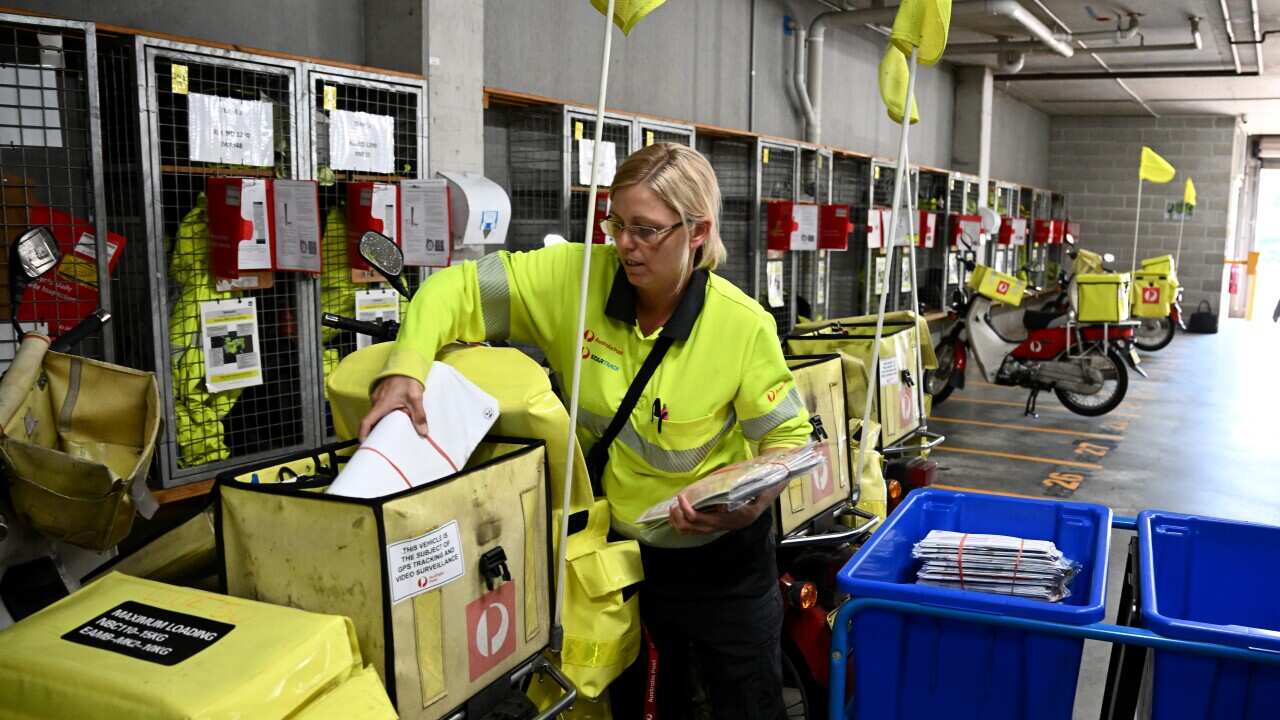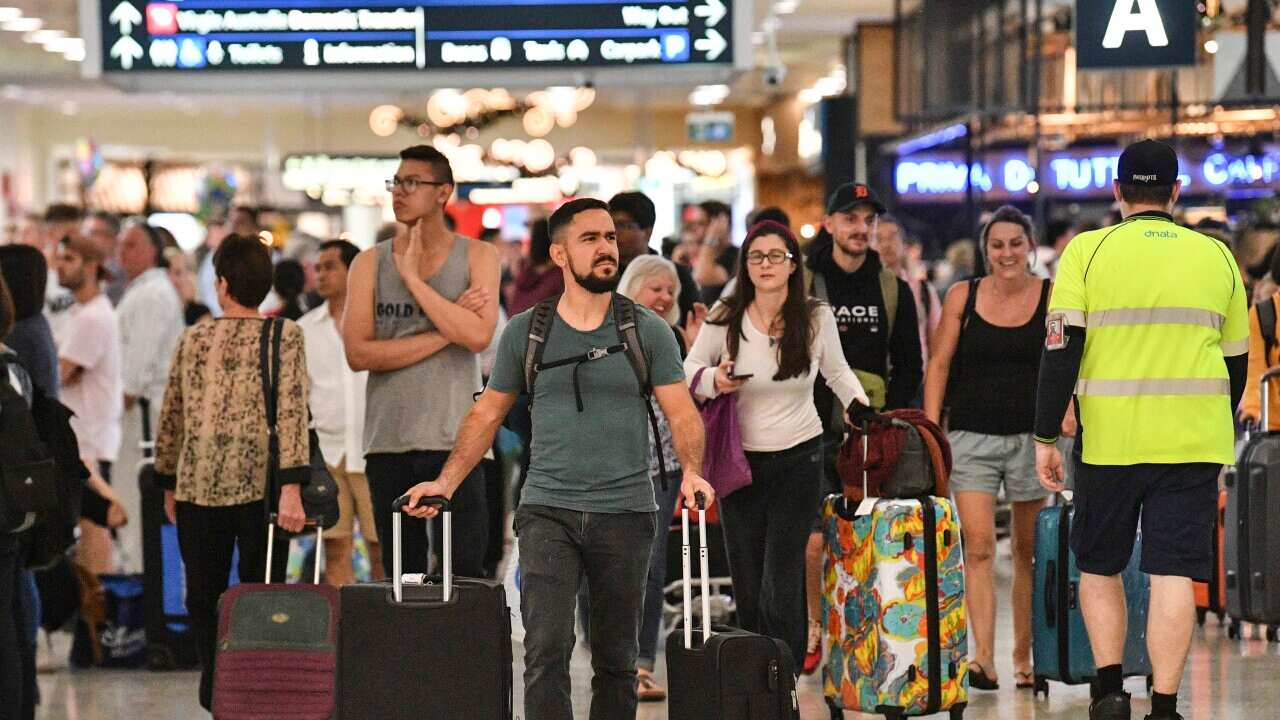On any ordinary Friday, almost 1,000 people congregate outside the Al Rahman Mosque in Perth’s southern suburbs.
But these are anything but ordinary times.
For the first time in Australia’s history, mosques across the country were effectively closed this week for Friday prayers to help control the spread of COVID-19.
“It is unprecedented, it isn’t something that has needed to be done before. But I think we are living in times that do require that necessity,” senior imam Yahya Adel Ibrahim told SBS News.
The spread of COVID-19 has wreaked havoc on places of worship across Australia, forcing the cancellation of services in buildings that usually see hundreds of people gathered closely together in prayer. Western Australia’s Islamic community was the first in Australia to order that mosques would not open on Islam’s holy day of the week.
Western Australia’s Islamic community was the first in Australia to order that mosques would not open on Islam’s holy day of the week.

Imam Yahya Adel Ibrahim said the decision to close mosques considered many factors. Source: Aaron Fernandes/SBS News
“We spoke about jurisprudence, morality, ethics. We had medical consultants that were here with us, doctors,” Mr Ibrahim said.
“Initially, we said ‘how about we limit it to a certain number?’ It went from that to receiving medical advice that [contagion] is really only one handshake away, everyone praying together.
A consensus among the imams that mosques would be closed to the public was quickly reached.
“One of the aims of our religious law is to preserve life. That would at times eclipse the right for our congregational worship of God.” The Australian Federation of Islamic Councils soon followed suit, making the landmark ruling that Friday prayers should not be held in any mosque, prayer hall or indoor facility.
The Australian Federation of Islamic Councils soon followed suit, making the landmark ruling that Friday prayers should not be held in any mosque, prayer hall or indoor facility.

The Al Rahman mosque in Perth was empty on a Friday for the first time. Source: Aaron Fernandes/SBS News
Across Australia, the vast majority of mosques are now closed off for congregational prayers throughout the week, and in particular on Fridays.
More than 600,000 people in Australia identify as Muslim, according to the 2016 Census, and there are hundreds of mosques across the country.
The Islamic Council of Western Australia lists 25 mosques, prayer rooms and Islamic organisations in the state. A gathering of Islamic missionaries in Malaysia last month is believed to be responsible for hundreds of infections across Southeast Asia.
A gathering of Islamic missionaries in Malaysia last month is believed to be responsible for hundreds of infections across Southeast Asia.

The Al Rahman mosque in Gosnells usually draws hundreds for Friday prayers. Source: Aaron Fernandes/SBS News
“What happened in Singapore had a great impact on our decisions as well,” Mr Ibrahim said.
But not all countries have followed suit. In Indonesia, some groups have refused to abandon Friday prayers.  By and large, religious organisations across Australia have demonstrated a willingness to adapt to meet the challenges of coronavirus.
By and large, religious organisations across Australia have demonstrated a willingness to adapt to meet the challenges of coronavirus.

COVID-19 has caused disruption to religious services across the country. Source: Aaron Fernandes/SBS News
Peter Kurti is the director of the Culture, Prosperity and Civil Society Program at the Centre for Independent Studies.
"I think it's quite overwhelming for religious leaders, for bishops, priests, rabbis, imams. They're suddenly confronted with a very new way of ordering their lives and they have to find new ways and do so very quickly,” he said.
"Religion plays the role it normally plays in human life, which is to be a source of comfort and a source of strength in times of hardship or uncertainty.
"It gives a tremendous sense of comfort to people who follow a religion, and helps them frame those questions in a broader context, and I think it helps focus attention away from the immediate dire concerns of public health authorities to think about a greater kind of meaning." Many religious leaders are now moving their services online so people can still stay connected to their community and place of worship.
Many religious leaders are now moving their services online so people can still stay connected to their community and place of worship.

It is not yet known when normal services will resume. Source: Aaron Fernandes/SBS News
While there’s no telling when Friday prayers will resume in person, Western Australia’s Islamic leaders say the current crisis is a reminder to practice gratitude and understanding.
“From the perspective of Islam, any pestilence, any trial, any hardship is not seen as having an overwhelming nature of evil that is greater than the good that can be found in it,” Mr Ibrahim said.
“Even in God treating us in a way that we may not understand there is always a silver lining in it.
“So it humbles us, and it makes us reconnect with the higher purpose of why we’re here. Which is to be in service of man so that we can be true servants of God."
If you believe you may have contracted the virus, call your doctor, don’t visit, or contact the national Coronavirus Health Information Hotline on 1800 020 080.
If you are struggling to breathe or experiencing a medical emergency, call 000.











